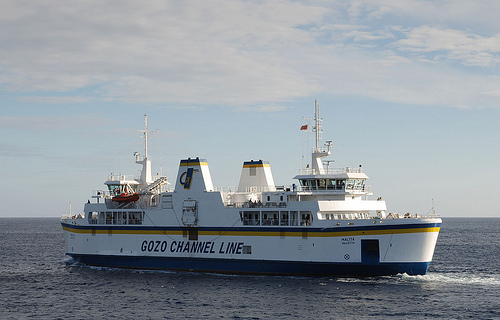I don’t know whether Carm Mifsud Bonnici has his own facebook account – though I know that he does blog on a regular basis. If he does have a facebook account – or if he did – it would be fitting if his current status read “serene”. He told reporters that felt serene both before and after the vote of confidence and this because he was prepared for every eventuality. Kudos to Carm Mifsud Bonnici who has opted to put on a brave display of cool, calm and a very Christian (democrat) form of zen. It is no coincidence that the emotional and physical behaviour of Mifsud Bonnici provide a stark contrast to the picture of a power hungry, angry and revengeful Franco Debono.
Joseph Muscat may have stressed the fact that this government (read the parliamentary group) remains divided and that no amount of confidence motions survived with the speaker’s vote or that of a recalcitrant Debono will improve the situation but the leader of the progressive movement may be missing the wood for the trees. The lack of political acumen in Labour is ever so glaringly obvious when they persist in error. The very rift that caused glee among labourite supporters and among those nationalists who are dying to spite GonziPN by seeing the end of it is the very foundation upon which the nationalist party’s potential revival is built upon.
How I hear you ask? Well to begin with the issue of the CMB motion was an eye opener of itself. Politics as it should be was nowhere to be seen. You may get the sweeping statements about the “unjust justice system” and you may have an opposition spokesman turning a list of grievances about the courts, the police and the laws into a show of unhappiness. What we did have in actual terms however was a bloodthirsty attack at the throat of an ex-Minister – for by the time the motion was presented (and amended into a call for resignation) that was what CMB had become.
If the subject of the motion had been the supposedly disastrous state of affairs in the justice ministry then the only resignation that should have been demanded – and a symbolic one at that – should have been of the Minister currently in charge of the portfolio. That would be Minister Chris Said. So many lessons of ministerial responsibility, collective responsibility, governmental responsibility had been given in press conferences and long-winded speeches that one would have expected this motion to be directed at the right person. But no.
And it is evident why not. Because politics and responsibility had nothing to do with this motion. Whether or not you agree with the ills that befell our justice and security systems in the past few years, your cause, your petita was not considered one bit. Instead – as has been widely documented – this was a vendetta. It was personal.
J’accuse has elsewhere complained about the use of certain terminology in politics. The martyr complex, the excessive descriptions of “suffering” and “hurt”. A large part of our voting masses reason in these terms. It is no crude calculation on the basis of policies but rather a complex build up of emotions where a partisan DNA struggles with feeling of entitlement, chips on the shoulder and some weird collective illusion that politicians suffer whenever they “serve” the people.
Carm Mifsud Bonnici’s serene acceptance of the inevitable outcome of the vendetta plot is no cup of hemlock. It is a rallying call. Strategically the moment of serenity is a necessary stroke of genius. Given that the political battle on a national level seems to have taken the direction of being fought out on the emotional rather than the factual fields then might as well take the cue early in this pre-election run. Mifsud Bonnici’s serenity comes out stronger when contrasted to the actions of his self-appointed nemesis Debono and that of the braying power-or-nothing pitchfork gang on the benches of the opposition.
We would have thought that exposing the absolute vacuum that is Labour’s sum total of projects and preparedness for its time in government would have been enough for PN to have a field day. On second thoughts and having seen the latest events unfold we cannot but applaud the emotional counter-moves that have begun to surface. If anything it will distract attention from the embarassing gaffes being committed in the social marketing field – better known as the mychoice.pn campaign.

